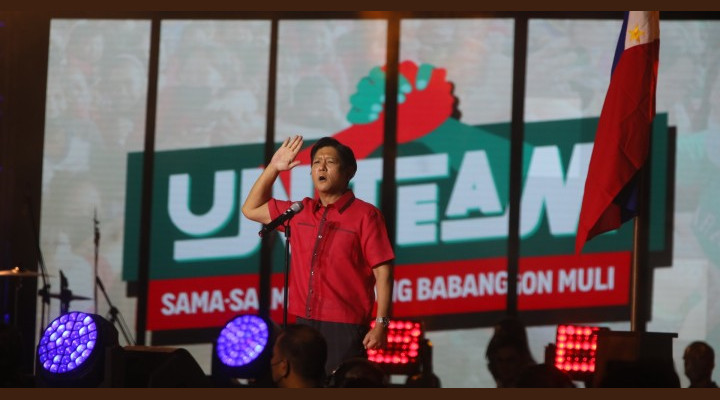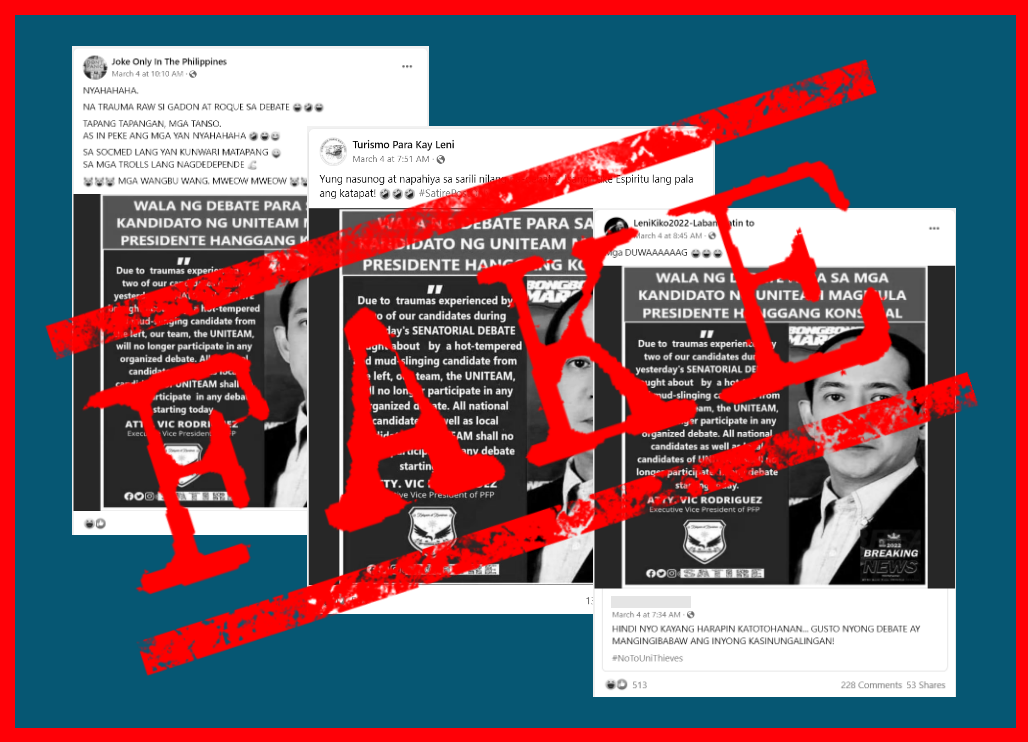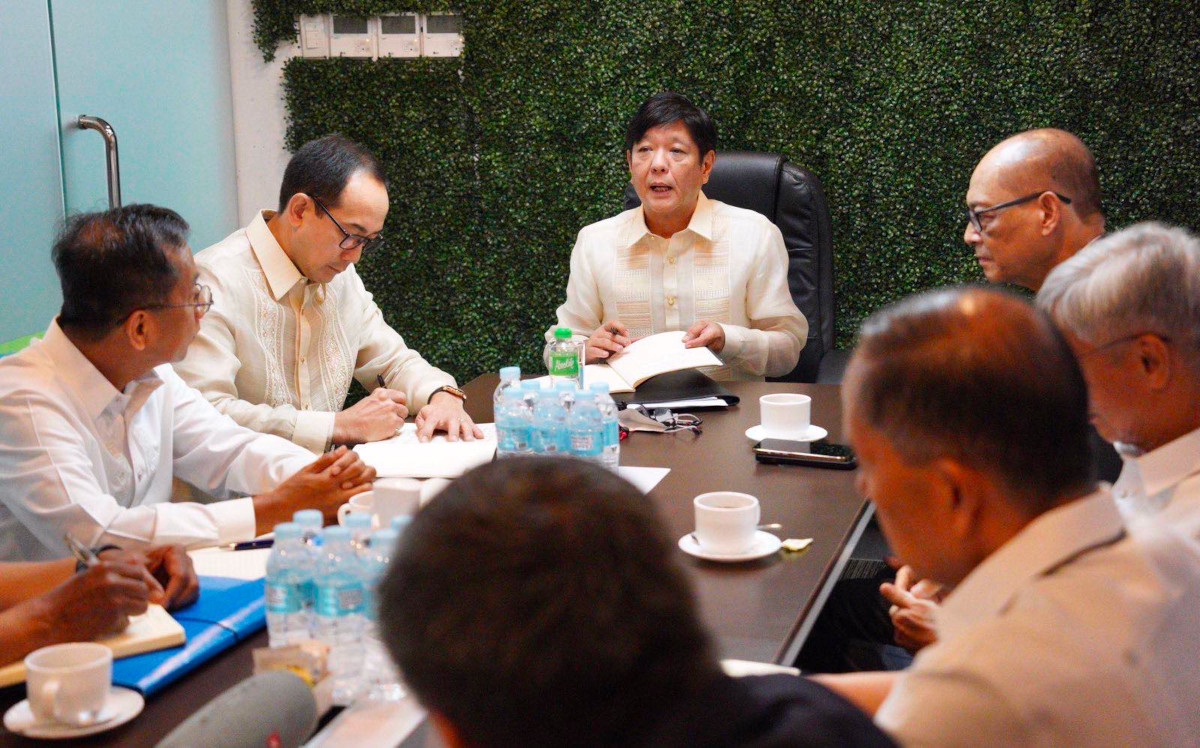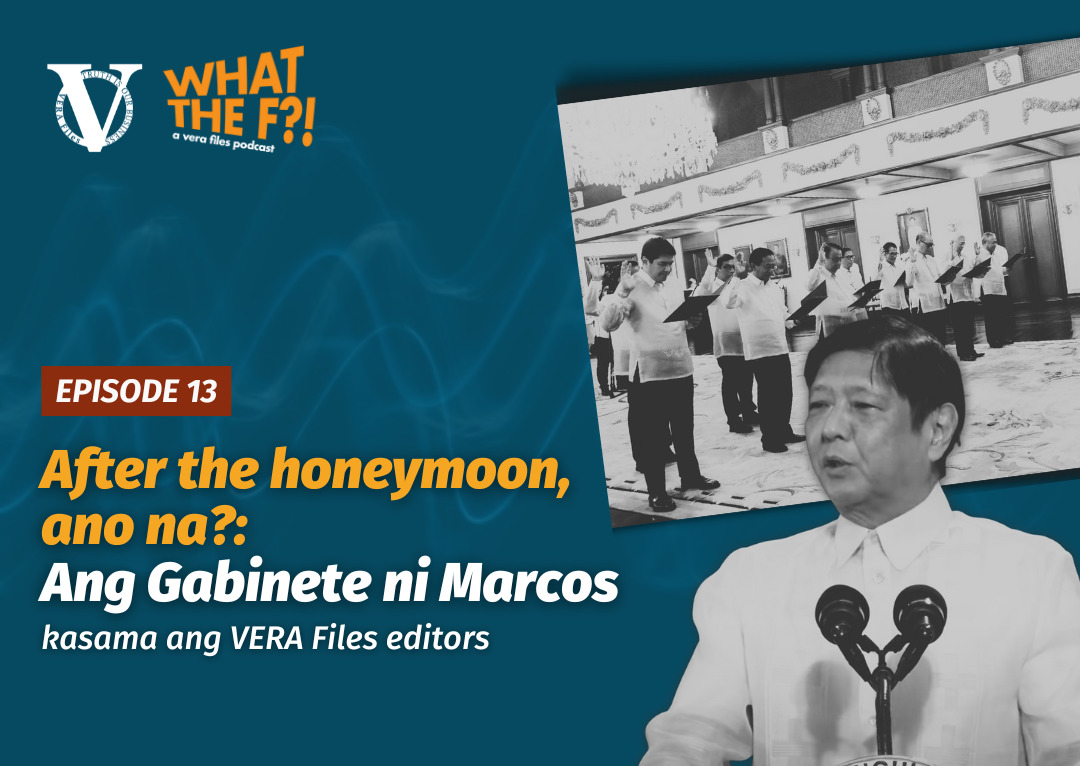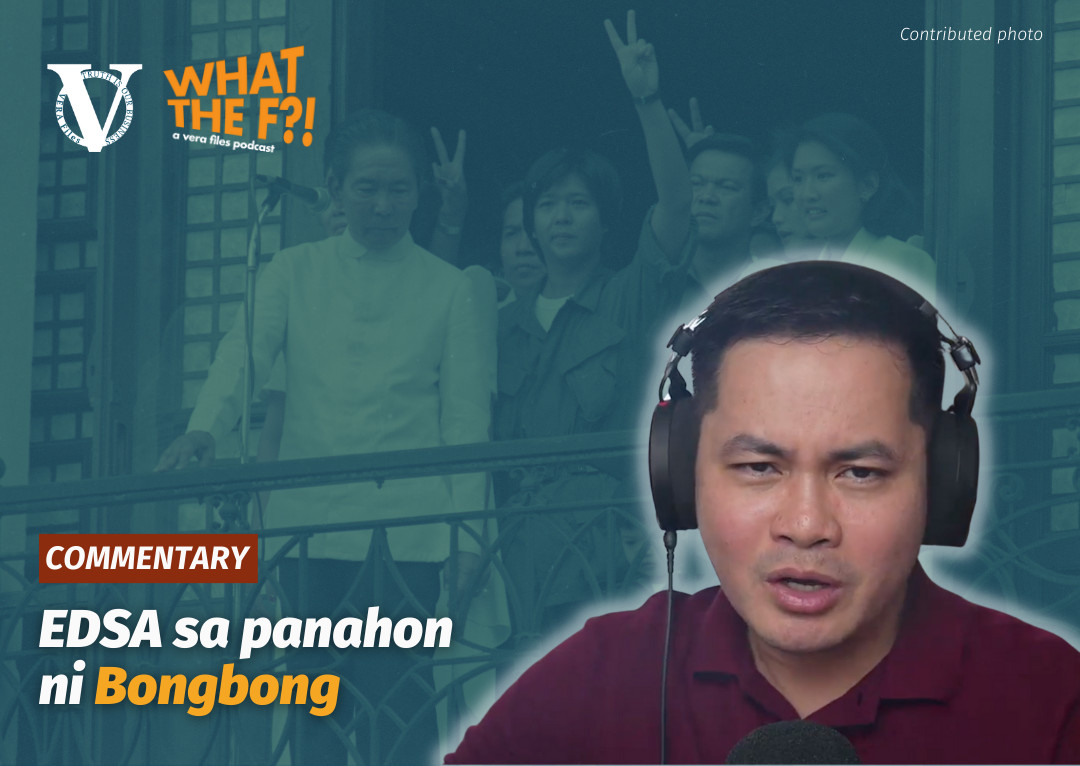Former president Rodrigo Duterte once described him as a “weak leader” and a “spoiled brat.” But as Ferdinand “Bongbong” Marcos Jr. began his six-year term as the country’s 17th president, he made several promises and vowed to get things done.
The 64-year-old former senator committed to “[shed] the last bead of sweat or giving the last ounce of courage and sacrifice” for the Filipinos and try to spare the people from being burdened by “every difficult decision” he would make.
Whew! The “spoiled brat” promises to really work hard, huh! And the decisions he promises to make give an impression that he wouldn’t be a “weak leader,” as his predecessor pictured him to be during the campaign.
Marcos Jr.’s inaugural speech last Thursday was in good form; it was well-written. The new president delivered it well, making some believe that it was extemporaneous and came from the heart. The short sentences were easy to digest and impactful.
However, fact-checkers easily spotted some inaccurate claims in Marcos Jr.’s first public speech as the country’s president. He claimed in the first paragraph of his speech that his victory in the May 9 elections “deliver[ed] the biggest electoral mandate in the history of Philippine democracy.” This needs context.
While Marcos Jr. indeed got the highest number of votes of 31.6 million in Philippine electoral history, his 58.7% share of the vote is only the third-highest margin of victory in the country, next to Manuel Quezon, who garnered the second-highest vote percentage of 67.9% in the 1935 polls and Ramon Magsaysay, whose victory in the 1953 elections holds the highest vote percentage of 68.9%, according to data from then-Presidential Communications Development and Strategic Planning Office’s Philippine Electoral Almanac and Congress.
Electoral mandate is based on the percentage share a candidate gets from the total number of voters, not on the total number of votes. The voters’ population changes every election, as well as the number of candidates, so it follows that the number of votes distributed also changes.
According to Marcos Jr., he “did not talk much” during the campaign and “did not bother to think of rebutting [his] rivals” because he “searched for promising approaches better than the usual solutions.”
As I can remember, he refused to answer questions about his conviction over non-payment of taxes, among other issues raised in the petitions for his disqualification, as well as questions about human rights violations during the regime of his father and namesake, Ferdinand E. Marcos Sr., who ruled the country from 1965 to 1986.
In his speech, Marcos Jr. said: “I believe that if we focus on the work at hand, and the work that will come to hand, we will go very far under my watch.”
“We will go further together than against each other, pushing forward, not pulling each other back out of fear, out of a misplaced sense of weakness,” he added.
The key word here is unity and cooperation. Don’t get in the way of his plans; otherwise, he might not be able to “go very far.”
While he said he would not talk about the past, but of the future, he did cite achievements of his father.
“My father built more and better roads, produced more rice than all administrations before his,” he said. He also praised Duterte, saying he “built more and better than all administrations succeeding my father’s.”
The president promised to continue extending a hand of reconciliation and to work for all the 110 million Filipinos, wherever they are, in pursuit of his singular campaign message of unity.
“Imagine how much more you’d achieve, if the government backstops instead of dictating your decisions. Always there to pick you up when you fall. Giving what you need to get past a problem. Imagine if it invested in your self-empowerment to bring it closer to taking on whatever challenges come. Imagine, a country that in almost every sense is you. Now imagine what you and the government can achieve together. We did it in the pandemic and we will do it again,” he said.
He promised that the “government will get as much done alone without requiring more from [the people].”
“That is what government and public officials are for. No excuses. Just deliver. It was like that, once upon a time,” he added, referring to his father’s regime.
He promises to spell out more of his programs and policies when he speaks before a joint session of Congress on July 25. Let’s see how he will deliver on his promises, hopefully as good as he delivered his inaugural speech. Abangan!
The views in this column are those of the author and do not necessarily reflect the views of VERA Files.
This column also appeared in The Manila Times.
